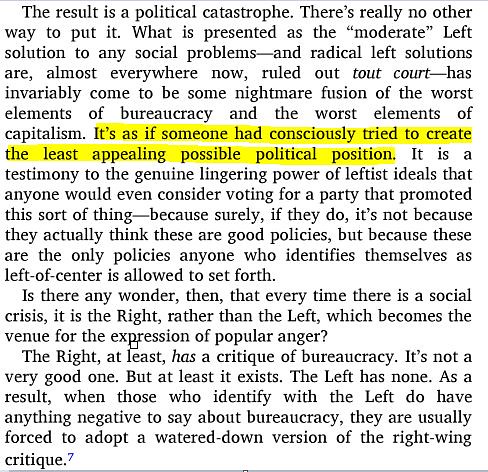Jim Bob Moffett resigned as chairman of Freeport McMoran yesterday. You might remember Jim Bob from his heyday in the 1980s as a "reformer" in Louisiana politics. Reformer, of course, can mean a lot of things. But conventional wisdom in the press then, very much like now, tends to apply the term to any recent arrival to the upper echelon of the city's business class.
A native of Louisiana who grew up in Texas, he attended the
University of Texas at Austin on a football scholarship and received a
master of science degree in geology from Tulane in 1963.
After working as a private independent, he formed McMoRan Oil &
Gas Co. with Ken McWilliams and B.M. Rankin, deriving the company name
from the beginnings of each one’s last names.
Moffett parlayed the company into one of the most successful
exploration operations in the country with a 70 percent success rate in
wildcatting for oil and natural gas.
In 1981, he was the chief architect of the company’s merger with
Freeport Minerals Co., a name well known in Louisiana, which had its
headquarters in New York. Moffett, chairman and chief executive officer
of the merged company, engineered a 1985 corporate move to New Orleans.
Successful entrepreneur brings cutting edge business and money to New Orleans and really shakes things up. That sort of thing. But what really seems to drive the kids crazy is a hot new 'Trep with the "courage" to talk about how backwards we all are. They love that.
Here's
a fantastic snapshot of New Orleans 1987 I found. It's an
Atlantic article by one time
Times-Picayune reporter Nicholas Lemann. I really must insist that you read that article. It's great, not only for the nostalgia, but also for the sense of "le plus ca change" one gets from reading about a New Orleans beset by fears about crime (both real and imagined), racial strife, and the sense that the tourism industry was eating away at the city's soul.
There are non-aesthetic reasons to worry about New Orleans's increasing
dependence on tourism. Tourism can enrich a small group of local
entrepreneurs, including real-estate developers and concessionaires;
some of these come from groups, like the black middle class, that were
previously shut out of the business life of the city. New entry-level
jobs in hotels are cold comfort for unemployed longshoremen, but they
are a real help to poor blacks working as domestics or not working at
all. Still, tourism is cyclical, and it's dominated by national chains
whose profits go out town. And if New Orleans is primarily in the
business of selling itself rather than its raw materials and its dock
facilities, then being a city that satisfies its own requirements but
not the outside world's might not work anymore.
Anyway, it's amid this very familiar setting that Lemann describes Moffett to us.
It's a testament to Moffett's superior drive and to the flagging
self-confidence of old-line New Orleans that he has been much more
successful than any previous oilman at becoming a civic leader. In 1981
his independent exploration company merged with Freeport Minerals and
in1985 moved its headquarters from New York to a new building across the
street from the Louisiana Superdome, with its street number emblazoned
in Roman numerals on its entablature. Then he, along with a group of
other businessmen, founded an organization called the Business Council,
modeled on civic oligarchies like the Citizens. Council, in Dallas, and
the Vault, in Boston, to whip the city and the state into shape again,
and the establishment stepped back to see what he could do. He got a
hero's welcome in the press.
Nothing is more impressive to the conventional wisdom than when "
civic oligarchies" get together with a mind to "whip" the rest of us into shape. Particularly when they dress
their maneuverings in the trappings of "education reform."
They get to collect all sorts of awards for that. Mostly this is because of how easy it is to say, "think of the children" in any situation and come off as a serious person to the lazy minded. It's easy to say, as Moffett says in his interview, "You've got to educate the people. You have to believe in the American way of life, and it all starts with educating the masses." And have everyone praise your amazingly bold and original idea.
As it turned out, though, Moffett's truly bold idea was to see if he could get permission for his company to dump gypsum into the Mississippi River. This started to turn some of his fans against him..
at least among the number he couldn't buy.
That he has suddenly become the pariah of the local media didn't come
as that great a surprise, for Robinette has displayed a venal streak
before. There he was as an anchor on WWL-TV news in the 1980s, railing
righteously against Freeport McMoRan for threatening the public health
with piles of radioactive gypsum along the Mississippi.
Nothing could stop our great environmental crusader until Freeport
boss Jim Bob Moffett up and offered him a job with a fat salary, and he
dutifully metamorphosed overnight into an apologist for global
pollution.
He was more or less a forgotten sell-out until he turned up as a talk
show host on WWL radio just before Katrina, which had apparently
changed him back into an environmentalist.
Robinette serves as a pretty good stand in for Moffett's media treatment in general. The gypsum story knocked him off of his pedestal somewhat but not entirely. Instead he became a figure of convenience depending on whoever else he might be at odds with at any given time. For the most part he, like Robinette's other good friend Fred Heebe, was able to purchase enough goodwill to stay out of trouble.
This could lead to some interesting fits of cognitive dissonance. For example, Moffett appears in the Lemman article fresh off a clash with Edwin Edwards administration over his gypsum.
Earlier this year a courageous state environmental bureaucrat denied
Freeport a permit to dump gypsum into the Mississippi River. Moffett,
who seemed to think he had a deal with the state (the governor's brother
was once on the Freeport payroll as a lobbyist), blew his stack. He
held a press conference in February at which he threatened to move his
company away from New Orleans and called Louisiana a banana republic.
Just to be clear, Moffett was unable to successfully bribe a public official and thus concluded he was living in a "banana republic." Oddly, he ended up being praised as much as he was criticized for making this comment anyway. Because it turns out the press does enjoy a good narrative about how romantically backwards our state is no matter how absurd the circumstances of its assertion.
Which is why, in 1987, many in the media continued to refer to Civic Leader Moffett's falling out with the "corrupt" Edwards while championing reform candidate Buddy Roemer. That Roemer could capitalize on this "banana republic" image of the state while also promising to run a more "
business friendly" administration could only be possible in the context of this stupid pretzel narrative presented by our establishment press fully encapsulated within the personal image of Jim Bob Moffett.
The illogic of the thing became even more obvious later on, when Moffett inevitably clashed with Governor Roemer over the very same gypsum controversy. Turns out the "business friendly" Roemer was even less friendly to Moffett's pollution business than the unfriendly Edwards had been. And when it came time for Roemer's ill-fated 1991 reelection campaign, Moffett would launch his own series of independently financed attack ads. Oddly, during the campaign, Edwards and not Moffett bore the brunt of the press criticism over Moffett's own self-serving turncoat. But then that really shouldn't come as a shock. Like we said, the establishment press loves them some business leaders.
In 1991 Moffett was named Gambit's "New Orleanian Of The Year."
Very much like today's 'treps regularly feted at NOLA.com, Moffett really was the quintessential "
volunteer entrepreneur" of his day. Later in 1991, Moffett's oil and mining company partnered with (of course) Ron Forman to create something called, and we shit you not,
The Freeport-McMoRan Audubon Species Survival Center and Wilderness Park at English Turn. Naturally, Moffett decided to take an opportunity at the groundbreaking to complain about... those goddamned environmentalists.
MOFFETT CRITICIZES ENVIRONMENTALISTS
Times-Picayune, The (New Orleans, LA) - November 23, 1991
But that's what they got.
James R. "Jim Bob" Moffett, chairman of
Freeport-McMoRan Inc., used the groundbreaking ceremony Friday for the
Freeport-McMoRanAudubon Species Survival Center and Wilderness Park to
attack environmentalists who, he said, don't appreciate businesses'
contributions to environmental protection.
"They need to stop kicking us in the fanny," said Moffett, whose company is often a target of environmentalists' criticism.
"We must have economic development in this world" and it "can and must
be done in concert with the environment and survival of the species," he
said.
Moffett said Louisiana businesses should "get the
facts" on such problems as loss of the state's wetlands and the
extinction of species, then "kick their (critics') butts and send them
back home."
Moffett's company is donating half the $10
million cost of the 1,200-acre Species Survival Center and Wilderness
Park, which the Audubon Institute will operate in the English Turn
section of Algiers.
Asked later about Moffett's remarks, L. Ron Forman,
president of the Audubon Institute, said he sees "a crying need for
business and environmental groups to work together if we are truly going
to solve problems. The constant bickering and name-calling should
stop."
Sorry about the long pull quote there. But I had to get that bit in where Forman tells us the real problem is all the divisive "bickering name-calling" instead of, say, millionaire polluters and their ability to buy their way into respectability. Nothing ever changes.



